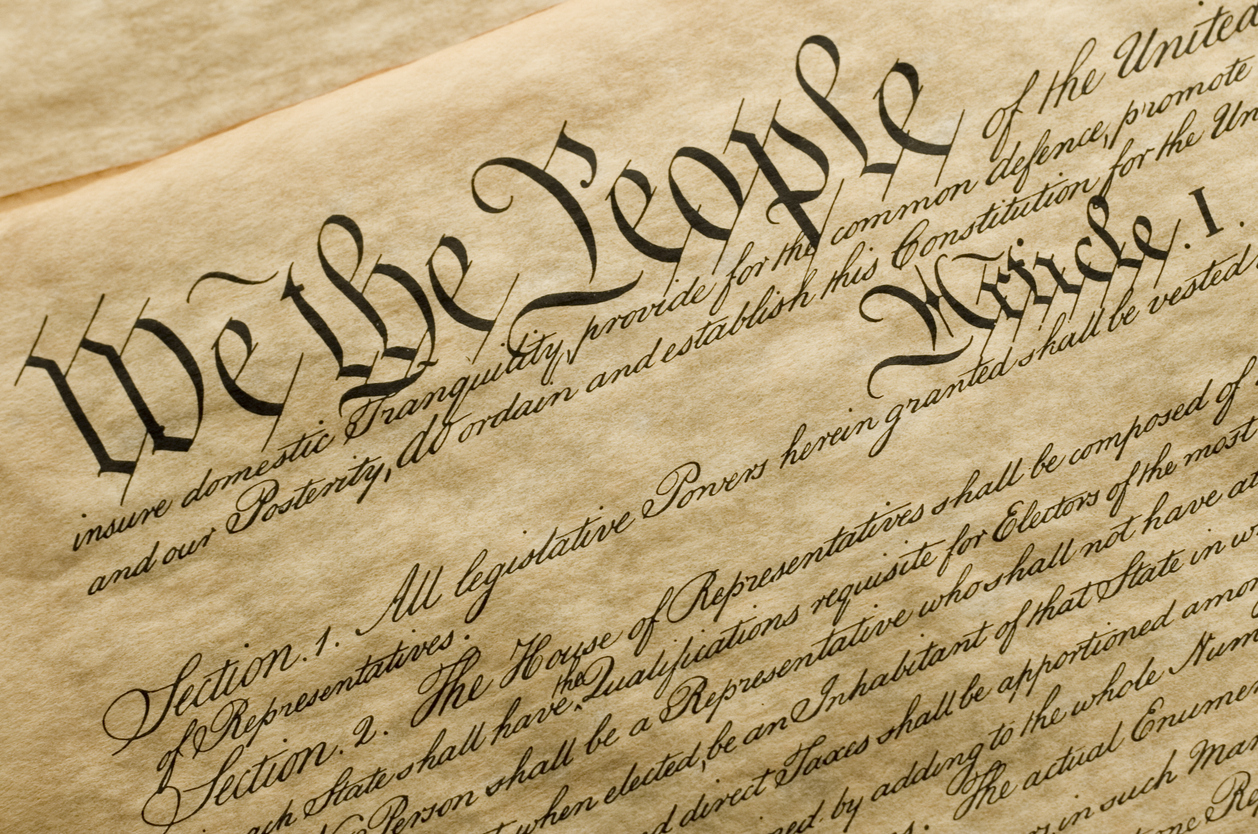December 3, 2020
Congress Legislated Under the Thirteenth Amendment Long Ago to Address Slavery’s Harms. It Should Do So Again.
Adjunct Professor of Law at the New York University School of Law and New York Law School.

December 6 marks the 155th ratification anniversary of the U.S. Constitution’s Thirteenth Amendment outlawing slavery and “involuntary servitude.” One of three Reconstruction Amendments (along with the Fourteenth and Fifteenth), the Thirteenth Amendment is the first time the Constitution mentions the word “slavery.” Remarkably, it’s also the first time the Constitution expands the federal government’s power, explicitly authorizing Congress’s reliance on “appropriate legislation” to ensure the dissolution of slavery and its remnants.
Congress set out to do that with various legislation during the Reconstruction era. To the extent that any social injuries of contemporary Black Americans still qualify as such remnants, Congress can—and should—do so again today.
Careful consideration of what the Thirteenth Amendment was ratified to accomplish informs why. In the wake of the Amendment’s 1865 ratification, Black Americans, free and formerly enslaved, reunited with loved ones, traveled, pursued education, and more, all with particular vigor. These acts underscore what Black Americans believed the Amendment to grant: a lavish form of freedom to live the lives they had long been denied. Because slavery was as much about the social death of Black Americans as it was about violent, physical servitude, the new freedom the Amendment conferred would enable Black Americans to do things like support their families. Build homes. Go to school. Take pleasure in life unencumbered. And for Black Americans, the Amendment, as enforced by Congress, would safeguard the freedom to pursue all of those without barrier.
That understanding comports with the goals Congress also had for the Thirteenth Amendment when it drafted it. Almost immediately after its ratification, for example, Congress seized its new power and enacted the Civil Rights Acts of 1866, guaranteeing Black Americans’ ability to enter contracts, own property, and access courts—the kind of rights infrastructure necessary for freedom to mean anything. The Civil Rights Act of 1875 under the Amendment soon followed, outlawing private race discrimination in public accommodations. For legislators like Senator Charles Sumner of Massachusetts, a prominent figure in the Amendment’s ratification process, such legislation’s justification was clear: preserving some rights for Black Americans was “not enough,” as the “denial of any right is wrong.” This early legislation, coupled with the ways Black Americans attempted to proceed with their lives, demonstrate that the Amendment was envisioned to bar not just forced physical labor; it was to assure what Sumner himself described as a “practical freedom.”
This freedom still eludes us as Black Americans today, notwithstanding that Congress retains the same remedial power it’s had since the Amendment’s ratification to correct that. Congress can build on its past Thirteenth Amendment legislation to take on the obstacles Black Americans still face in, among other things, housing, education, and, as especially reminded this year, protection from violence at the hands of state officials. These social phenomena are all heritable vestiges of those impediments erected to oppress Black Americans as part of slavery’s intricately designed and deep-rooted system. They therefore comfortably fall under Congress’s purview with respect to its enforcement of the Thirteenth Amendment.
The United States Supreme Court would seem to agree, at least under its current precedent. In its last major Thirteenth Amendment decision in 1967, the Court made clear that Congress can still legislate against social hurdles rooted in slavery. That decision, Jones v. Alfred H. Mayer Company, affirmed that the Amendment “clothed” Congress with legislative power to eradicate what the Court described as slavery’s “badges and incidents”—in the Jones case, that included the housing discrimination Black Americans faced in St. Louis, Missouri. The Court has since never questioned that rationale in Jones. Importantly, nor has it diluted that precedent as it has with the Fourteenth and Fifteenth Amendments’ respective powers to address slavery’s lingering wounds for Black Americans.
Yet, Congress’s reparative power under the Thirteenth Amendment is essentially untapped. This is in part because Congress’s accountability for legislating under the Amendment requires us as voters to appreciate the Amendment’s purpose. Still not enough of us do, despite increasing attention to the Reconstruction Amendments’ original aims and enduring capacities as constitutional levers for racial justice.
Besides unfamiliarity with the Amendment’s original purpose, others are increasingly suspicious of the Amendment’s “exception clause” that forbids slavery “except as a punishment for crime.” That clause has been dubbed a “loophole” that implicitly aids Black American overimprisonment. Such suspicion was the entire premise of a major documentary; has received attention in an award-winning Broadway play; and is a message still regularly propagated on social media. But the suspicion, while reasonable, belies the fact that the Supreme Court has never endorsed that clause as an escape hatch justifying Black American incarceration. The skepticism is also difficult to reconcile with both the express goals of the Amendment’s architects and the expectation that Black Americans themselves had for the expansive kind of freedom they understood the Amendment to bestow.
It is instead with rich hopefulness that we should understand the Thirteenth Amendment. In the midst of our most dynamic social movements concerning Black American life since the 1960s, now more than ever is there urgency for a direct national reckoning with slavery’s insistent legacy. Legislation under Congress’s Thirteenth Amendment powers that explicitly combats discrimination rooted in slavery is an appropriate and major step in that direction. The Amendment, now at 155 years old, was to facilitate the kind of liberation Black Americans imagined—and continue to imagine—for ourselves. All of us can still make good on that assurance by holding Congress accountable to that constitutional end.
Brence Pernell is an attorney and Adjunct Professor of Law at the New York University School of Law and New York Law School.




